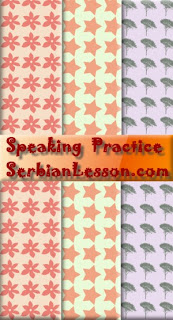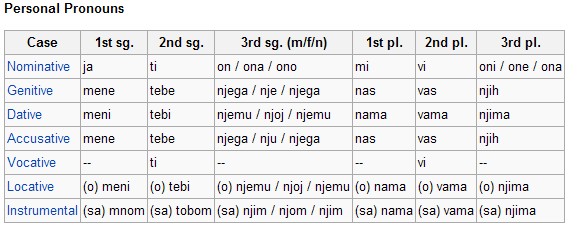I surely wasn't doing a great job tagging and linking the blog posts properly when I first started it back in 2007 - 2008. As it transpired, it seems there were only two posts covering the topic of comparison of adjectives in Serbian ! Shame on me ! This should be urgently fixed...
For now, try to compare the animals you see in the video sticking to the following sentence structure, using only the adjective "dangerous" = opasan (comparative : Singular: opasniji (masc) - opasnija(fem) - opasnije (neut.) Plural: opasniji (masc) - opasnije (fem) - opasnija (neut) )
Animals in the video with their Genitive form:
For now, try to compare the animals you see in the video sticking to the following sentence structure, using only the adjective "dangerous" = opasan (comparative : Singular: opasniji (masc) - opasnija(fem) - opasnije (neut.) Plural: opasniji (masc) - opasnije (fem) - opasnija (neut) )
- For pre-intermediate level: Lav je opasniji od zebre (Gen. of "zebra")
- For intermediate and upper levels: Mislim da je lav opasniji od zebre.
Animals in the video with their Genitive form:
- zebra - od zebre
- tigar - od tigra
- ajkula - od ajkule
- orao - od orla
- medved = od medveda
- lav = od lava
- panda = od pande
- vuk = od vuka
- žirafa = od žirafe
- aligator = od aligatora
- golub = od goluba
- zmija = od zmije
- lane = od laneta

.png)
















